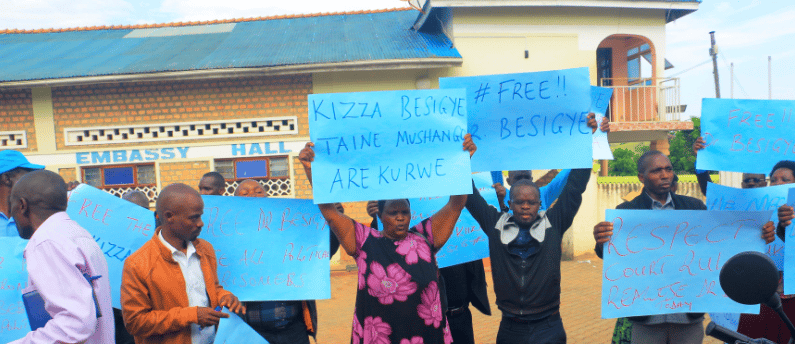Activists Mobilize for Protests in Museveni’s Hometown Against Besigye’s Detention
Activists Mobilize for Protests in Museveni’s Hometown Against Besigye’s Detention
LOCAL NEWSLATESTWORLD NEWS
2/16/20252 min read


Introduction
In a powerful show of solidarity and determination, activists have announced plans to stage protests in the hometown of President Yoweri Museveni. These protests are aimed at bringing attention to the detention of opposition leader Kizza Besigye, a move that has prompted widespread public outcry. The issue has sparked discussions about human rights, political freedom, and government accountability in Uganda.
The Context of the Protests
Kizza Besigye, a prominent figure in Uganda's political landscape and a long-term critic of President Museveni, was detained recently under controversial circumstances. His detention has led to accusations of politically motivated repression, a situation that has angered many citizens who view it as an attack on democratic values and civic rights. Activists, bolstered by a diverse coalition including student groups, human rights organizations, and civil society representatives, are mobilizing to voice their opposition to these government actions.
Objectives of the Protests
The upcoming protests aim to achieve a few key objectives. Firstly, they seek to demand the immediate release of Kizza Besigye and insist on his rights to fair treatment under the law. Secondly, the protests intend to highlight broader issues of political repression and to call for accountability from the Museveni government. Activists emphasize that public demonstrations serve as a critical avenue for citizens to express their frustrations and call for change in a political climate that many perceive as increasingly authoritarian.
Potential Impact on Ugandan Politics
The protests could signify a pivotal moment in Ugandan politics, particularly as civil unrest has become a common theme in the nation’s recent history. This movement not only underscores the perseverance of opposition forces against government suppression but also seeks to galvanize public support for a wider push for democracy. Observers note that successful mobilization could lend greater visibility to opposition voices and reinvigorate conversations about political reform in Uganda.
Conclusion
As activists prepare for the protests in President Museveni’s hometown, it is clear that the stakes are high. The detention of Kizza Besigye has become a rallying point, uniting diverse groups across the country. The outcome of these protests will be closely watched by both national and international audiences, as they hold the potential to influence the political landscape in Uganda moving forward. Activists remain steadfast in their commitment to advocating for justice and democracy, making it evident that the fight for political rights is far from over.
